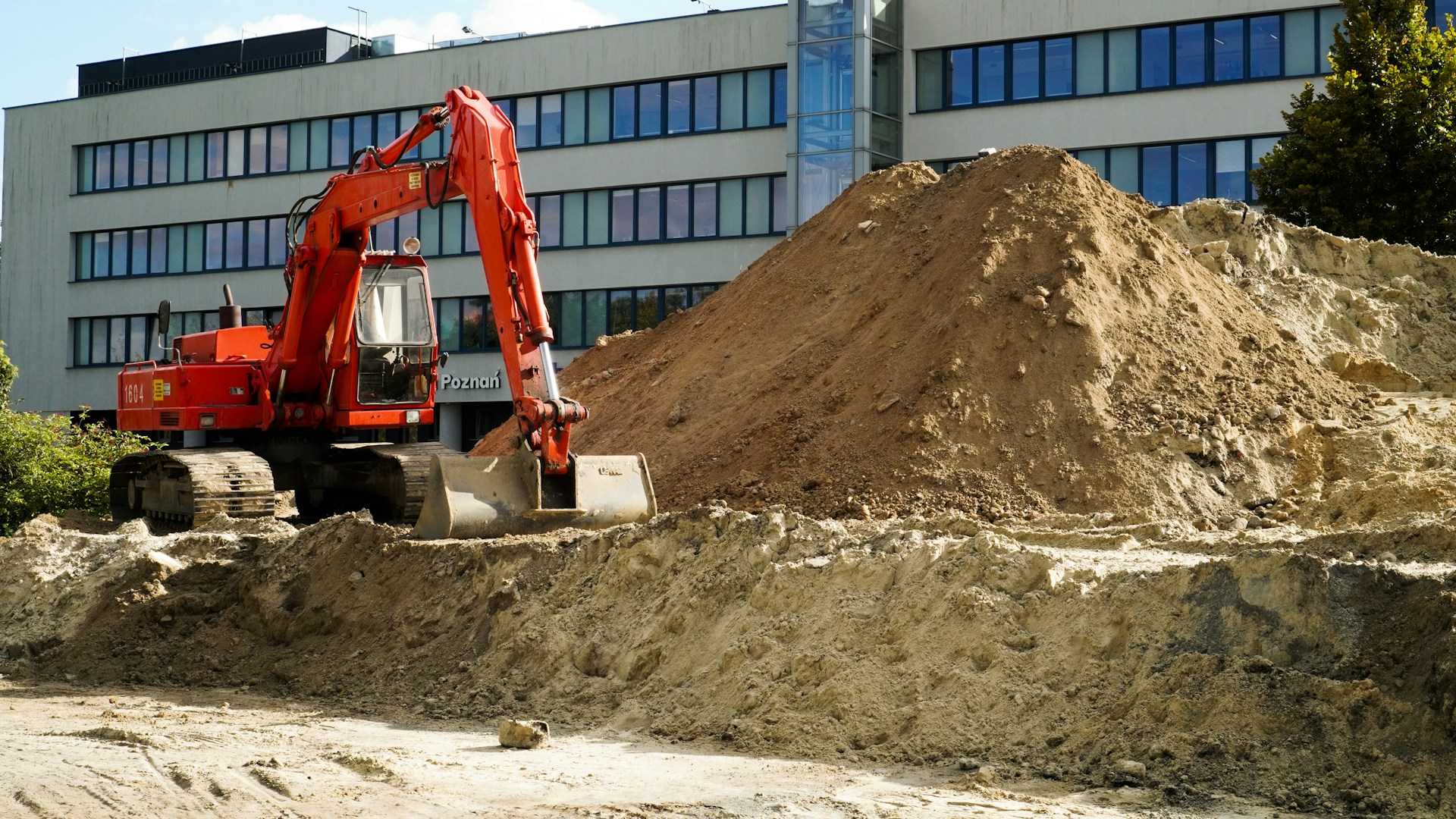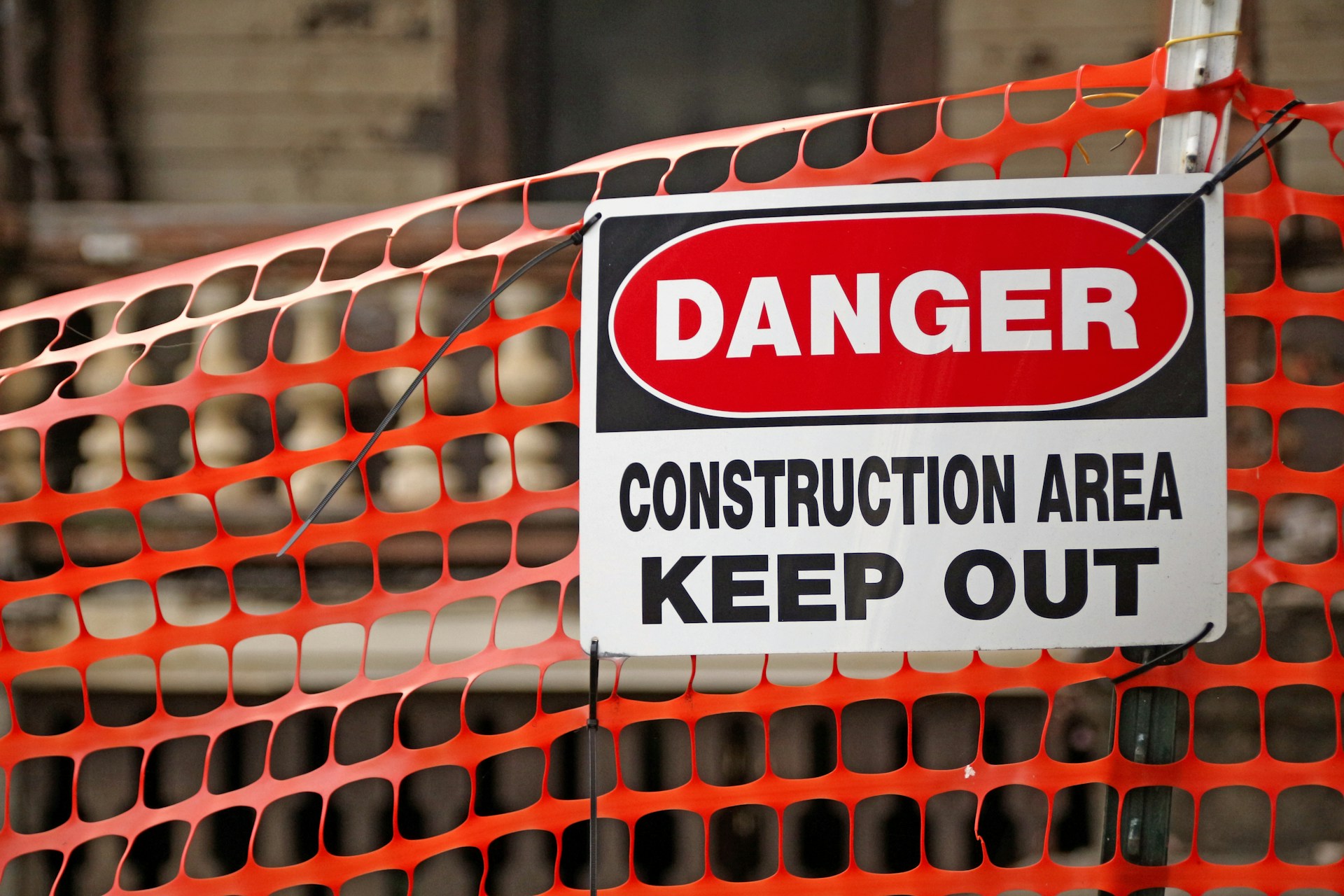Construction insurance is crucial for safeguarding property owners, developers, and contractors throughout the various stages of a building project. For business owners in the construction industry, proper insurance coverage is not just advisable—it’s essential for managing risks and meeting legal obligations.
The construction sector faces significant hazards, with alarmingly high rates of on-site injuries and fatalities. These inherent dangers underscore the critical need for comprehensive insurance protection. Without adequate coverage, companies are vulnerable to potentially devastating financial losses that could threaten their very existence.
By implementing a robust insurance strategy, construction business owners can:
- Protect their assets and investments
- Ensure business continuity in the face of accidents or setbacks
- Comply with state and local regulations
- Provide peace of mind to clients and stakeholders
In exploring construction insurance, we’ll examine the key types of coverage needed, how to assess your specific risks, and strategies for building a comprehensive insurance plan that safeguards your business. Understanding these fundamentals is crucial for any construction company aiming to thrive in this challenging industry.
What Types of Essential Construction Insurance Policies Should Business Owners Consider?

At EB3 Construction, we recognize that most construction businesses need multiple insurance policies to ensure comprehensive protection. A single policy simply isn’t sufficient to cover the wide range of risks inherent in our industry. Let’s explore the essential types of coverage we recommend for construction business owners:
General Liability Insurance
This foundational policy protects against third-party claims of bodily injury and property damage. For instance, if a visitor to your job site is injured by falling debris, general liability would cover their medical expenses and any legal costs if they decide to sue. We consider this coverage absolutely essential for any construction business.
Workers’ Compensation Insurance
Workers’ comp covers medical expenses and a portion of lost wages for employees injured on the job. Given the physical nature of construction work, this coverage is crucial. In fact, it’s legally required in most states. At EB3, we prioritize worker safety, but accidents can still happen – workers’ comp provides a safety net for our team.
Commercial Auto Insurance
If your business owns vehicles, commercial auto insurance isn’t just recommended – it’s required by law. This policy covers liability and physical damage for company vehicles used on job sites or for transportation between projects. With the number of vehicles typically involved in construction operations, this coverage is essential for protecting your fleet and your business.
Builder’s Risk Insurance
Also known as course of construction insurance, this policy covers buildings and structures while they’re under construction. It protects against risks like fire, vandalism, and certain weather events. For EB3 and other contractors, this coverage fills a crucial gap, as standard property insurance usually won’t cover unfinished structures.
Professional Liability Insurance
Also called errors and omissions (E&O) insurance, this policy protects against claims of negligence or mistakes in your professional services. If a client alleges that design flaws or poor advice led to costly issues, professional liability coverage can help cover legal defense and settlements. For construction firms offering design services, this policy is particularly important.
Tools and Equipment Coverage
Construction projects rely heavily on specialized tools and equipment. This policy helps replace or repair damaged, lost, or stolen equipment – from hand tools to heavy machinery. By ensuring you can quickly replace essential equipment, this coverage helps minimize costly project delays.
Umbrella Insurance
An umbrella policy provides an extra layer of liability protection beyond the limits of your other policies. In an industry where a single accident can lead to a multi-million dollar lawsuit, this additional coverage can make the difference between weathering a storm and facing financial ruin.
At EB3 Construction, we collaborate closely with our insurance partners to tailor a comprehensive coverage strategy for each project. While the costs of multiple policies may seem daunting, we’ve found that the protection they provide is invaluable in today’s complex construction landscape. We encourage all construction business owners to thoughtfully consider their risk exposure and work with experienced advisors to build a robust insurance portfolio.
| Type of Policy | Average Annual Premiums |
|---|---|
| Commercial General Liability Insurance | $450 to $500 for small and midsize contractors |
| Builder’s Risk Insurance | 1% to 4% of the total cost of the construction project |
| Tools and Equipment Insurance | Starts at $400 |
| Equipment Breakdown Insurance | Starts at $230 |
| Commercial Property Insurance | $500 to $1,000 for small contractors |
| Commercial Vehicle Insurance | $300 to $3,000 depending on the number of vehicles |
| Pollution Liability Insurance | $3,500 for $2 million coverage limit |
| Contractors’ E&O Insurance | $250 to $500 depending on the coverage limit |
| Mobile Property Insurance | $160 to $200 |
| Surety Bond | 1% to 15% of the bond cost |
When Are Construction Insurance Policies Required by Law or Contract?
As a general contractor, we understand the critical importance of having proper insurance coverage in place. Some types of insurance policies are legally mandated for construction businesses, while others are commonly required by contracts and clients. Let’s examine the key insurance requirements we need to be aware of:
Legally Required Insurance
There are two main types of insurance that are legally required for most construction businesses:
Commercial Auto Insurance: This coverage is mandated by all states and the federal government for vehicles used for business purposes. We must meet specific minimum liability limits, which vary by state but typically include bodily injury and property damage coverage. As contractors regularly transporting equipment and materials, maintaining proper commercial auto insurance is essential for our operations.
Workers’ Compensation Insurance: Nearly all states require businesses with employees to carry workers’ compensation coverage. This protects our workers in case of job-related injuries or illnesses. The specific requirements can vary, but we ensure full compliance with our state’s regulations to avoid penalties and protect our team.
Contractually Required Insurance
While not always legally mandated, certain insurance policies are frequently required by construction contracts and clients:
General Liability Insurance: Many clients and contracts demand that we carry general liability coverage to protect against third-party bodily injury and property damage claims. This is often a prerequisite for bidding on projects.
Builders Risk Insurance: For larger projects, especially those involving new construction or major renovations, clients often require builders risk coverage to protect the structure and materials during the construction phase.
Professional Liability Insurance: If we’re involved in design-build work or providing any professional services, clients may require professional liability coverage to protect against errors and omissions.
Client-Specific Requirements
We’ve found that large organizations like local governments, universities, and major corporations typically have more stringent insurance requirements in their contracts. These often include:
- Higher liability limits for general liability coverage
- Specific endorsements like additional insured status
- Umbrella or excess liability policies for added protection
To ensure compliance, we carefully review each contract’s insurance requirements and work closely with our insurance broker to obtain the necessary coverage and documentation. This often includes providing certificates of insurance to demonstrate our compliance with contractual obligations.
By staying on top of both legal mandates and client-specific insurance requirements, we protect our business, meet our obligations, and position ourselves as a reliable and responsible contractor in the industry.
| Type of Insurance | Average Annual Premium | Legal Requirement | Common Usage |
|---|---|---|---|
| General Liability Insurance | $500 – $1,500 | Usually | Bodily injury and property damage |
| Workers’ Compensation Insurance | $5,000 – $8,000 per employee | Usually | Covers employee injuries |
| Commercial Auto Insurance | $800 – $5,000 per vehicle | Always | Covers business vehicles |
| Builders Risk Insurance | 1-5% of project cost | Usually | Protects structures during construction |
| Professional Liability Insurance | $800 – $2,000 | Recommended | Errors in professional services |
| Umbrella Insurance | $1,000 – $3,000 | Recommended | Extra liability protection |
| Surety Bonds | $100 – $10,000 | Sometimes | Guarantees contract completion |
| Inland Marine Insurance | $2,000 – $3,000 | Sometimes | Property in transit |
| Pollution Liability Insurance | Claims from hazardous waste |
How Much Does Construction Insurance Cost and What Factors Affect Pricing?

Construction insurance costs can vary significantly due to several key factors. At EB3 Construction, we understand the importance of budgeting accurately for insurance coverage. While exact prices differ based on individual circumstances, we can provide some general ranges to aid in initial planning:
Typical Cost Ranges
General liability insurance for contractors usually costs between $500 to $1,500 annually. Workers’ compensation insurance tends to be more expensive, often ranging from $5,000 to $8,000 per employee per year. For builder’s risk insurance, premiums typically amount to 1-5% of the total construction project cost.
Key Factors Influencing Insurance Pricing
When determining rates for construction insurance policies, insurers evaluate several aspects of a contractor’s business:
- Company size and annual revenue
- Geographic location and regional risks
- Specific construction services offered
- Value of equipment and tools
- Number of employees
- Claims history and safety record
Generally, contractors facing higher operational risks will pay higher insurance premiums. For example, a commercial high-rise builder will likely have higher rates than a residential remodeling company.
Risk Assessment and Coverage Decisions
When evaluating insurance needs, we recommend contractors carefully assess their risk exposure and determine appropriate coverage limits and deductibles. While higher deductibles can lower premium costs, they also increase out-of-pocket expenses if a claim occurs. We work with clients to find the right balance between comprehensive protection and budget-friendly rates.
Implementing strong safety programs and risk mitigation strategies can help reduce insurance costs over time. By demonstrating a commitment to safety, contractors may qualify for more favorable rates from insurers.
| Cheapest Company | Average Monthly Cost | Average Annual Cost |
|---|---|---|
| biBERK | $204 | $2,451 |
| The Hartford | $224 | $2,684 |
| Simply Business | $235 | $2,818 |
| Thimble | $235 | $2,815 |
| Coverdash | $259 | $3,110 |
| Progressive Commercial | $269 | $3,228 |
| NEXT Insurance | $286 | $3,431 |
| Chubb | $290 | $3,478 |
| Hiscox | $294 | $3,533 |
| Nationwide | $300 | $3,595 |
Keep in mind these are general guidelines, and actual costs can vary. We recommend speaking with an experienced insurance agent who specializes in construction coverage to get customized quotes based on your specific business details and needs.
How Can Construction Insurance Build Trust and Enhance Business Opportunities?
At EB3 Construction, we’ve come to understand that proper insurance coverage offers more than just protection against financial losses—it’s a powerful tool for building credibility and opening doors to new business opportunities. In the construction industry, robust insurance is increasingly recognized as a mark of professionalism and reliability.
When we meet potential clients, especially for larger projects, insurance coverage is often one of the first topics they inquire about. Many clients now require proof of adequate insurance before considering contract awards. By maintaining comprehensive coverage, we position ourselves to access a broader range of business opportunities that might otherwise be inaccessible.
We’ve found that our insurance program is a decisive factor in winning contracts and building long-term relationships with clients and partners. Presenting our certificate of insurance and commitment to thorough risk management gives clients peace of mind. They recognize our financial capacity to manage potential issues, allowing them to focus on the project rather than liability concerns.
Beyond client relationships, our insurance coverage helps us retain skilled workers. Team members feel more secure knowing they’re protected if accidents occur on the job site. This sense of security translates into higher morale, improved productivity, and lower turnover—all of which enable us to consistently deliver quality work.
We’ve also utilized our insurance program as a marketing tool. By highlighting our comprehensive coverage in proposals and marketing materials, we differentiate ourselves from competitors who may have more limited protection. This is particularly valuable when competing for projects with stringent insurance requirements.
Ultimately, we see our construction insurance not as a necessary expense, but as a strategic investment in our company’s reputation and future growth. The trust it builds with clients, workers, and partners yields benefits far beyond the premiums paid, opening up opportunities and fostering relationships that drive our business forward.
| Insurance Type | Description |
|---|---|
| General Liability Insurance | Protects against third-party claims of bodily injury and property damage. |
| Workers’ Compensation Insurance | Covers medical expenses and lost wages for employees injured on the job. |
| Commercial Auto Insurance | Covers liability and physical damage for company vehicles used for business. |
| Builder’s Risk Insurance | Covers buildings and structures under construction against various risks. |
| Professional Liability Insurance | Protects against claims of negligence or mistakes in professional services. |
| Tools and Equipment Coverage | Helps repair or replace damaged, lost, or stolen construction equipment. |
| Umbrella Insurance | Provides additional liability protection beyond other policy limits. |
Conclusion: Creating a Comprehensive Construction Insurance Strategy

Understanding construction insurance requirements is essential for business owners in this high-risk industry. By familiarizing ourselves with various policies, legal mandates, and cost factors, we can develop a comprehensive insurance strategy that safeguards our business, employees, and projects. Insurance isn’t merely about compliance—it’s a vital investment in our business’s sustainability, reputation, and growth potential.
At EB3 Construction, we understand that every construction business has unique risks and insurance needs. Therefore, we collaborate closely with knowledgeable insurance brokers to tailor coverage to our specific operations. This approach ensures we are well-protected against the diverse risks we face on job sites and in our overall business activities.
Looking ahead, maintaining a robust insurance program will be crucial for our long-term success. As the construction industry evolves, so will the associated risks. By staying proactive with risk management and regularly reviewing our coverage with insurance professionals, we position ourselves for sustainable growth while safeguarding our assets, workforce, and project outcomes.
Choose a contractor who values safety, compliance, and thorough risk management on every project. Contact EB3 Construction today to work with a team committed to protecting your investment from start to finish.




